Tackling the early child care crisis: Common Start bill would subsidize families, divert money to providers
| Published: 10-24-2023 4:36 PM |
BOSTON — New Village, a nonprofit early education community in Northampton, has long faced the brutal reality of the early child care crisis. The school, which offers progressive and social justice-minded education for families across western Massachusetts, depends on government funding to stay afloat, despite a long waitlist of parents eager to enroll their children.
The problems plaguing child care right now come from all directions, explained Suzanne Stillinger, a teacher leader and accessibility coordinator at New Village. Many centers are unaffordable for parents, or they are located too far away from where they live. At the same time, teachers and providers are not making a livable wage, forcing many to leave the workforce.
On top of that, organizations like New Village can’t meet demand without significant help from the state and federal governments.
“We know this is where we’re needed and so we choose it,” Stillinger said of teachers’ decisions to work in early education. But the “heartbreaking truth” is that most teachers live beneath, or close to, the poverty line.
That’s why Stillinger found herself on Beacon Hill last week, joining dozens of parents and educators to testify before the Joint Committee on Education in support of legislation that would offer families financial assistance with the cost of early education and child care and address the stability of the industry.
A bill, commonly referred to as Common Start (S 301 / H 489), would largely subsidize expensive early childhood education for lower-income families, leading to huge projected increases in the percentage of young kids in such programs by reducing the cost burden for families. Backers hope the measure will increase child development and well-being and boost the commonwealth’s economy.
The bill also seeks to steer state funds toward early care providers, to directly offset provider operating costs, including higher educator pay.
Although Congress previously infused $24 billion into child care as a part of the 2021 American Rescue Plan, experts agree this money is beginning to dry up.
Article continues after...
Yesterday's Most Read Articles
 More than 130 arrested at pro-Palestinian protest at UMass
More than 130 arrested at pro-Palestinian protest at UMass
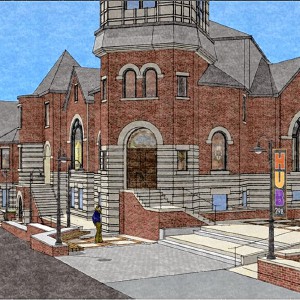 Public gets a look at progress on Northampton Resilience Hub
Public gets a look at progress on Northampton Resilience Hub
 Northampton bans auto dealerships near downtown; zone change won’t affect Volvo operation on King Street
Northampton bans auto dealerships near downtown; zone change won’t affect Volvo operation on King Street
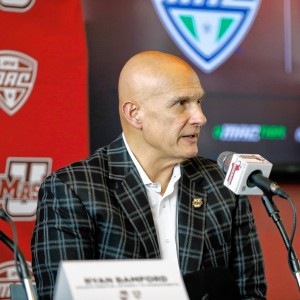 UMass basketball: Bryant forward Daniel Rivera to be Minutemen’s first transfer of the offseason
UMass basketball: Bryant forward Daniel Rivera to be Minutemen’s first transfer of the offseason
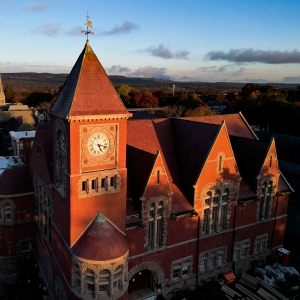 Town manager’s plan shorts Amherst Regional Schools’ budget
Town manager’s plan shorts Amherst Regional Schools’ budget
 Police respond to alcohol-fueled incidents in Amherst
Police respond to alcohol-fueled incidents in Amherst
Andrew Farnitano, a spokesperson for the Common Start Coalition, said the coalition came together in 2018 to do a “deep dive” into the problems in child care and early education in Massachusetts. They drafted their original bill and filed it during the 2021-22 session, though it didn’t make it over the finish line.
“A lot of the problems we see in the child care system, a lack of affordability for parents, a hiring crisis, struggles that educators face with low pay, all of these struggles existed before COVID, but the pandemic shone a light on them,” Farnitano said.
Farnitano explained that although the Common Start bills have been gaining momentum since the creation of the coalition, which now includes over 160 organizations across the state, it was only in the past few years that people began to see the state of early child care for what it is: an economic crisis.
“The bill really tries to comprehensively tackle multiple ways the early education and child care system is not working,” he said.
In its first year, the legislation would offer financial assistance aimed at families earning at or below 85% of the state’s median income ($115,546 for a family of four, or $78,571 for a family of two). A recent UMass Boston report said that would cover nearly half of all Massachusetts families with children under 14, or under 17 with special needs.
This significant increase in subsidies would reduce the cost of child care from an average of 17.2% of a family’s earnings to 4.3% — generating an average of $13,260 in savings a year — and it would also cost the state $1.7 billion, the UMass researchers found.
And that $1.7 billion does not cover the full cost of the Common Start bill.
The House version of the legislation, sponsored by Rep. Ken Gordon and Rep. Adrian Madaro, would eventually raise the financial assistance threshold to families earning 125% of the state median income, a level representing about $169,920 annually for a four-person household, and ties the timeline of expanded eligibility to federal funding.
A Senate bill co-sponsored by Sens. Jason Lewis and Susan Moran would extend eligibility for financial assistance to families making up to 200% of state median income — which would extend to upper middle-class households, who make an average $271,872 per year in a family of four. The senators’ legislation would incrementally expand the subsidy eligibility over five years.
The Senate bill would also make early childhood care free for all families who live below the federal poverty level, which is currently $30,000 per year for a four-person household.
Under the current law, only households that earn 50% or less of the state median income — equivalent to about $67,968 annually for a household of four — qualify for some subsidies.
According to a study from Child Care Aware of America, two in five children in working-class families in the commonwealth do not have access to child care. The issue is particularly prevalent in western Massachusetts, which is experiencing what Stillinger calls a “child care desert.”
Because of this, New Village enrolls students from far and wide, with a waitlist so long that families often join it before their baby is born.
“We have some families at our preschool who travel an hour each way to bring their kids to care and then back up to work. So they’re commuting an hour and a half, two hours each way,” Stillinger said.
Aidn White, the infant program director at New Village, explained that families who are looking for a “progressive,” “social justice” centered education for their children have nowhere to look but New Village.
“I know families who have been rejected from child care due to their race or their family composition. And that is something that our school actively strives to not do,” White said.
New Village uses an enrollment prioritization process, bumping families of color, queer families and single-parent households to the top of their waitlist. White explained this often means that classrooms at New Village are more diverse than others across the state.
For White, the reality of working in child care means they are unable to start a family of their own, with their current salary.
“I’m going to work every day and I’m taking other people’s babies into my arms rather than being able to take my own into my arms,” they said.
White said due to its nature, infant care has suffered on a different level than other stages of early education. Not only does infant care require a much higher ratio of teachers to students, but its formative effects are often overlooked.
“On top of the economic and social benefits for families and for parents, there is a strong correlation between kids who go into school as infants, and those who are prepared for actual academic work in kindergarten,” White said.
In the classroom, infants “get to socialize with other kids their own age, create these healthy bonds with other caregivers and other people that are around them,” White said. “The social, emotional benefits cannot be understated.”
This report contains material from the State House News Service. Eden Mor writes for the Gazette as part of the Boston University Statehouse Program.

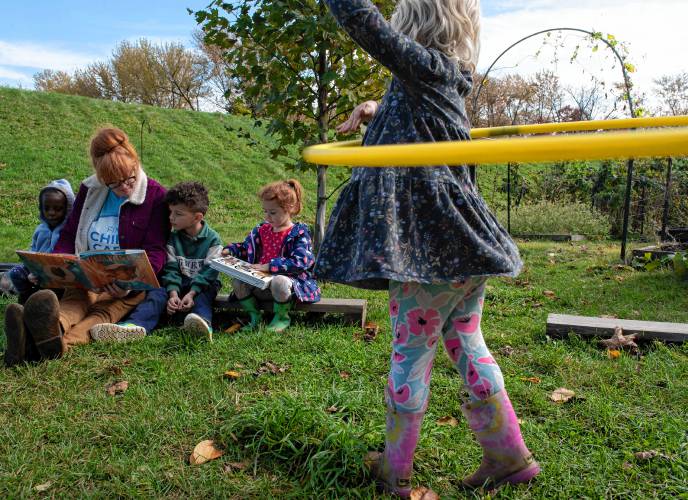
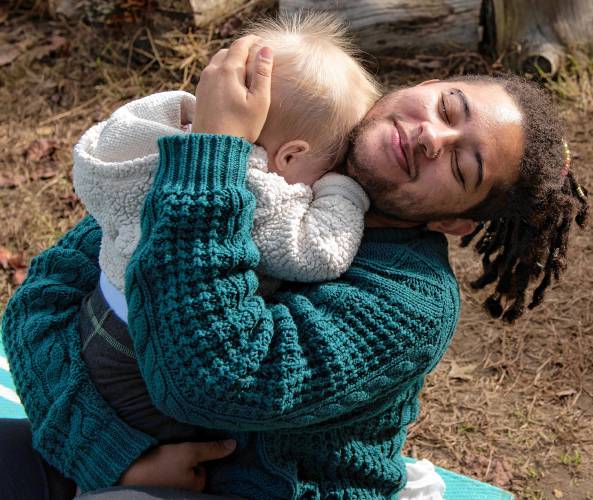
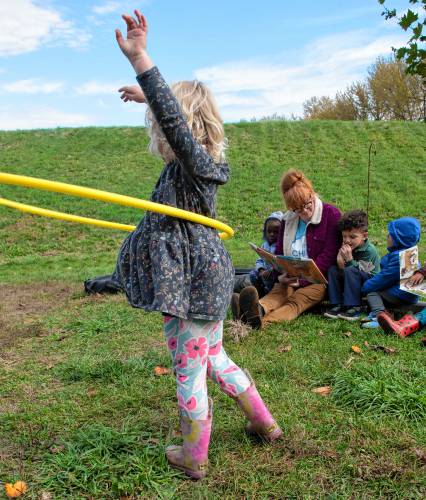
 State Senate budget funds free community college for all
State Senate budget funds free community college for all ‘We can just be who we are’: Thousands show support for LGBTQ community at Hampshire Pride
‘We can just be who we are’: Thousands show support for LGBTQ community at Hampshire Pride Doors open at Tilton Library’s temporary home at South Deerfield Congregational Church
Doors open at Tilton Library’s temporary home at South Deerfield Congregational Church Area property deed transfers, May 2
Area property deed transfers, May 2
